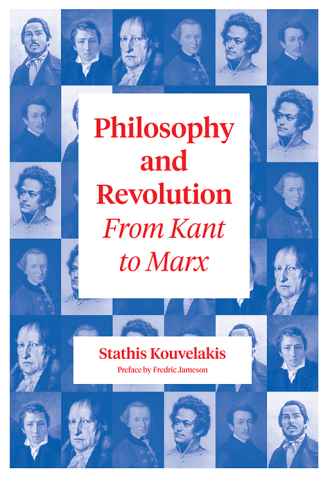
Philosophy and Revolution
From Kant to Marx
کتاب های مرتبط
- اطلاعات
- نقد و بررسی
- دیدگاه کاربران
نقد و بررسی

March 1, 2003
This ambitious tract on the formation of Karl Marx's ideas brings together disparate currents in an original and multifaceted reading. Combining intellectual history and biographical narrative, with a hemming and hawing distrust of both modes, Kouvelakis re-evalutates the cultural context of Marx's ideological development, and the constellation of personalities that made it possible. Poet Heinrich Heine, the"first ironic German," gains some footing in Kouvelakis's evaluation, while Engels recedes a bit, and the primacy of the 1848 French Revolution's effects on the thought of 19th century German philosophy in general remains unquestioned. Overall, the book produces the effect of bright webbing strung between the people and events of a pivotal time, as the ancien regime of Europe segued convulsively into modernity, winding pathways of thought leading always towards the explosive event of revolution. Admittedly, some of this effect might be a result of unwieldy translations:"I have chosen to approach the early Marx's trajectory as a theoretical event that is utterly incomprehensible when it is considered apart from the sequence that precedes it (chronologically, to begin with, but also in the order of my exposition) yet is radically irreducible to it." And that's only the second half of a weighty, establishing thought. For scholars of Marx or European philosophy, and those accustomed to labored, academic prose, this book offers a fresh methodology and original interpretation of Marx's achievements.

























دیدگاه کاربران